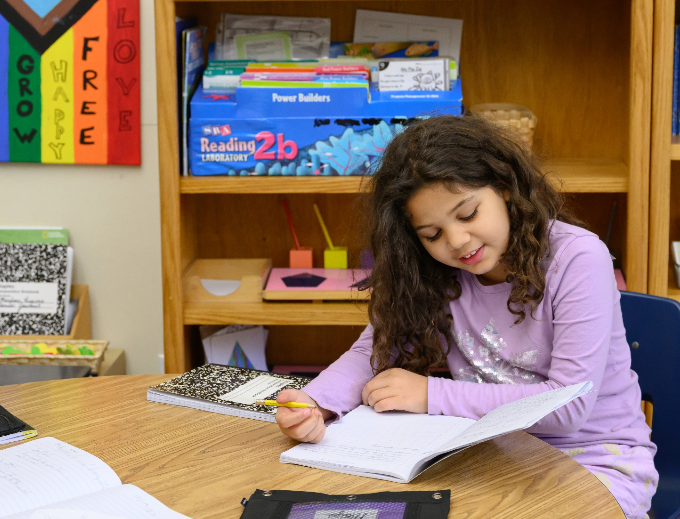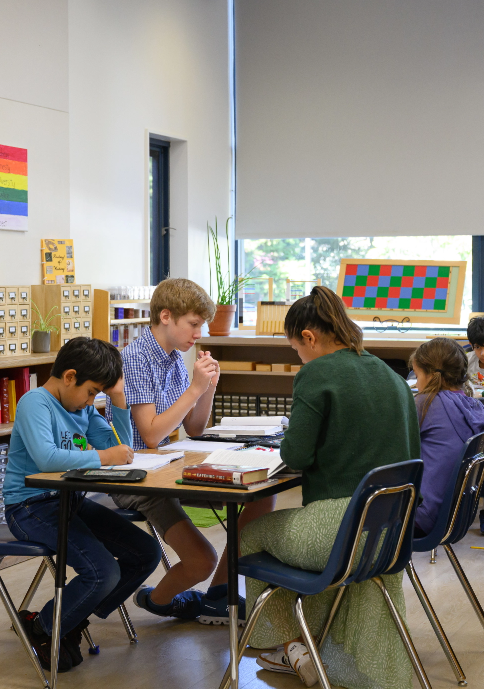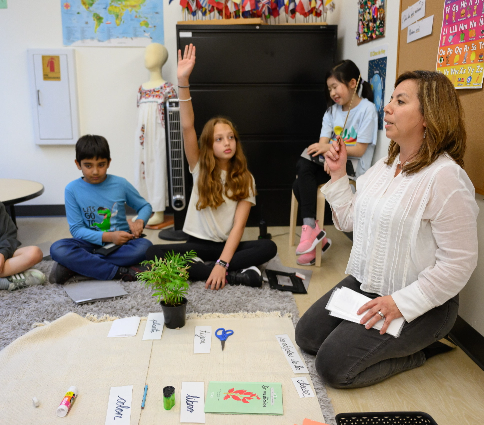
Forging the Path to Lifelong Success
Discover how Montessori offers a distinct educational experience, from the research-backed approach to specially designed learning materials to a caring community and how the American Montessori Society supports everyone involved in this community.

Benefits of Montessori Education
- Montessori education focuses on the whole child, fostering vigorous, self-motivated growth in all areas of development – cognitive, emotional, social, and physical.
- Children cultivate a strong sense of curiosity within a nourishing environment that extends beyond the classroom.
- Concentration, confidence, collaboration and independence from an early age results in long-term positive outcomes on students’ success.
- Students learn how to contribute to empathetic and caring communities.
- Continuing Montessori into secondary school integrates academics with purposeful work, fostering confident, skilled citizens.
How It Works
Let’s examine how Montessori students are set up for a life of success.
Children are individuals
Montessori education recognizes and accommodates all learning styles, letting students advance as they are ready.
Classrooms nurture concentration and independence
Intentional classroom design, materials, and daily routines support the student’s ability to self-educate and think about what they’re learning.
Multi-age classes offer a close, caring community
The multi-age classroom re-creates a family structure. Older students are mentors and role models, younger children feel supported and gain confidence, and teachers model respect, loving kindness, and a peaceful conflict resolution.
Students enjoy freedom within limits
Working within parameters set by their teachers and the classroom community, students are active participants in deciding what their focus of learning will be.
Students become active knowledge seekers
The classroom environment gives students the freedom and tools to pursue answers to their own questions. Internal satisfaction drives curiosity and results in joyous learning that lasts a lifetime.
Self-correction and self-assessment are an integral part of the approach
As they mature, students learn to look critically at their work, and become adept at recognizing, correcting, and learning from their errors.
Montessori supports social-emotional skills
Contemporary research supports the 100-year-old Montessori Method’s effectiveness, indicating that children who learn in Montessori classrooms demonstrate stronger social-emotional skills in many areas than children in more traditional environments.
Backed by Research
A growing body of evidence demonstrates the success of Montessori’s holistic approach in achieving strong student outcomes—academically and beyond.
Why an AMS school?
AMS member schools who are participating in the Pathway of Continuous School Improvement or who have earned accreditation are dedicated to meeting quality standards, and work to provide a high-fidelity Montessori education.
